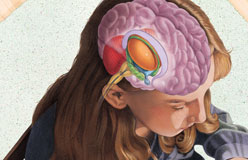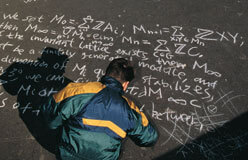To find out if something’s long or short, you can trust a ruler, but is there a ruler to measure “smart”? Albert Einstein, the most famous genius of the twentieth century, had more mental might than most. But how much more?
People are smart in far too many ways to measure on a simple scale. Einstein was a genius in physics, but could he keep an audience laughing? Rihanna is a brilliant singer, but can she write a brilliant novel? Poet Maya Angelou had an ingenious way with words, but could she multiply five-digit numbers in her head? Probably no better than you can. We use the word genius about many different things. They include language, music, math, visual perception (art, engineering), and psychology. We even use it to describe body movement, such as dance and sports.
“IQ” stands for intelligence quotient. Maybe you’ve even taken an IQ test in school. Someone may have told you that an IQ of 100 is average, and that higher scores mean greater intelligence, while lower scores indicate less intelligence. Don’t believe it. Since we can be very smart and skilled in some areas and not in others, measuring overall intelligence is difficult. The value of IQ tests is being challenged. Here are some things that critics of the IQ test say:
• The questions test only language and math.
• The questions tend to be written for people who are white and not poor.
• The tests don’t allow for changes in intelligence.
• Test givers make mistakes.







